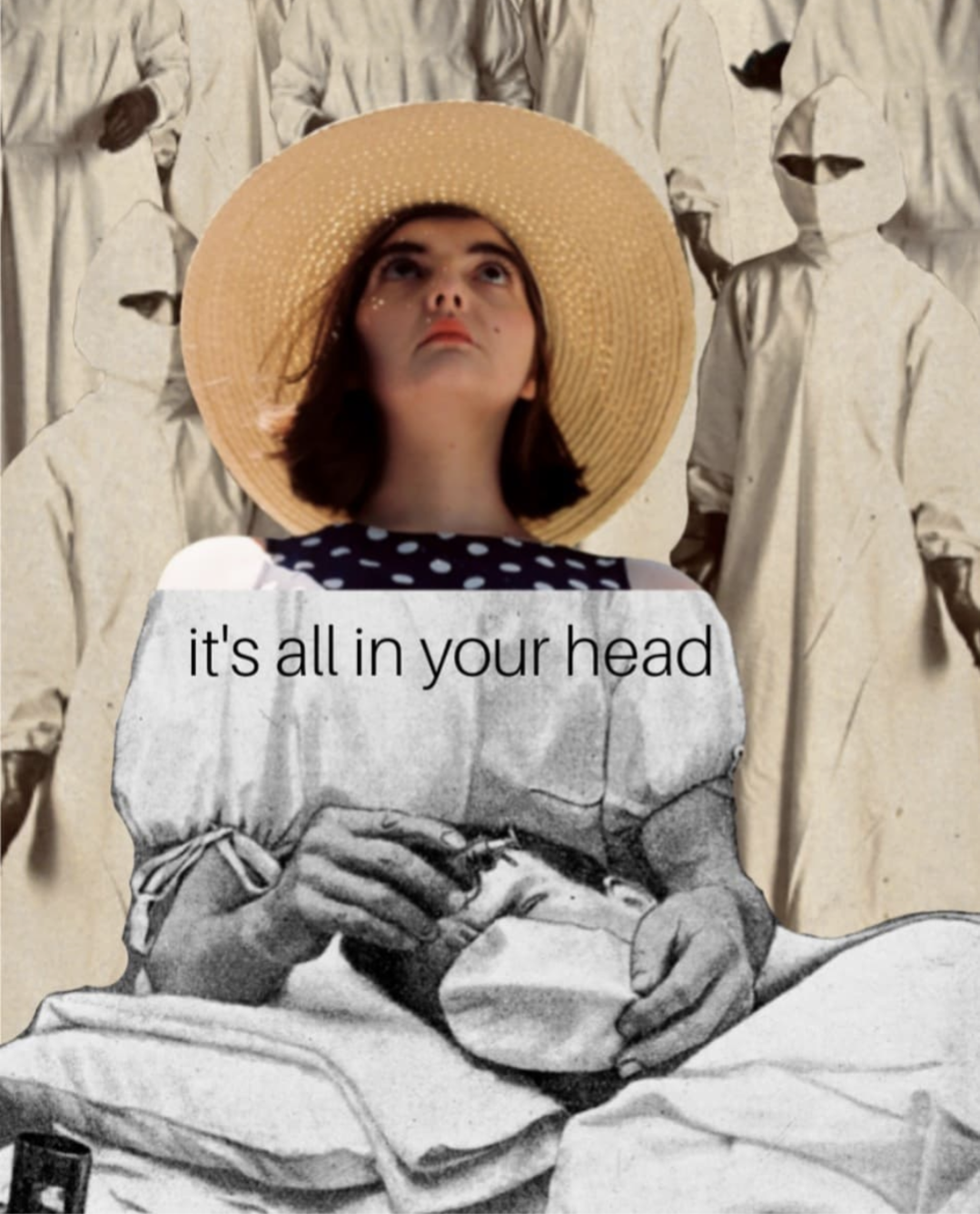Charlie Fitz
Does it feel like an elephant is sitting on your chest? (2022)
Charlie Fitz
Single channel video
1 minute 45 seconds
Courtesy the artist.
Music and archival footage by Oscar Vinter
Watch video with audio description
Will I feel better tomorrow? (2022)
Charlie Fitz
Single channel video
2 minutes 25 seconds
Courtesy the artist.
Music and archival footage by Oscar Vinter
Watch video with audio description
An extraordinary lightness (2022)
Charlie Fitz
Single channel video
3 minutes 22 seconds
Courtesy the artist.
Music and archival footage by Oscar Vinter
Watch video with audio description

About Charlie Fitz
Charlie Fitz is a UK based sick and disabled artist, writer and medical humanities postgraduate at Birkbeck, where she is a recipient of a Wellcome Trust studentship. She is a member of Resting Up Collective and of the arts practice group TRIAD³. Her multiform projects broadly explore experiences of illness and trauma.
Fitz is interested in how creative practice can help rebuild a self that is fragmented by illness
and trauma. The three film pieces exhibited are developed from audio-visual experiments she undertook during the residency using both personal and public archival materials. The works played a therapeutic process, in which she explored the trauma of patienthood and aspects of her own embodiment. As a sick and disabled artist with an interest in medical humanities, her work often focuses on illness, hospitalisation and medical trauma. Following the last two years, this area of artistic research has greater contemporary relevance as illness and hospitalisation have become far more commonplace experiences during the Covid-19 pandemic.